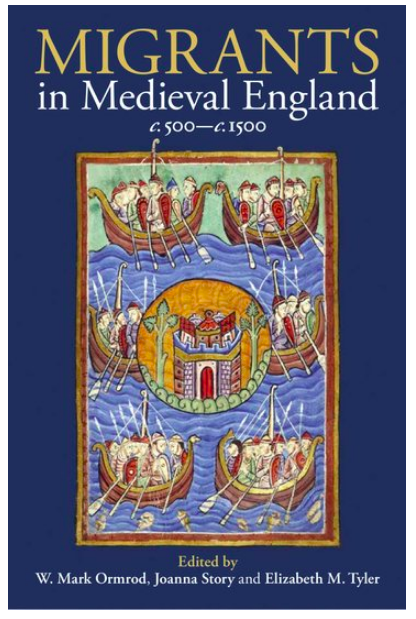Professor Hadley publishes chapter about the role of migrants during the Viking Age and the Norman Conquest
Posted on Tuesday 18 August 2020

A book to be published by the British Academy – Migrants in Medieval England, c. 500-c. 1500 – provides an in-depth analysis of migration into medieval England, and features a chapter by Prof. Dawn Hadley from the Department of Archaeology.
The contributors to the volume demonstrate that movement of people into England was a constant influence on the development of the nation and had an extensive impact on the shaping of the concept of Englishness. Dawn’s chapter discusses the archaeological evidence for migration into England during the Viking Age and the Norman Conquest, between the 9th and 12th centuries, and also for migration and regular mobility within England in this period. She discusses the ways in which the archaeological study of migration has gone in and out of fashion, showing that confidence in the capacity of archaeological evidence to trace migration has waxed and waned. That ethnic identity is both constructed and malleable is widely accepted, but Dawn argues that acknowledgement of this has tended to result in the fact of migration and the activities and contributions of migrants being downplayed.
She shows that evidence for changes in craft practices, culinary habits and settlement organisation provide subtle but distinctive markers of the influences of migrants, while burial rites can often reveal much about the wide regions across which communities had travelled. She argues that the tendency to discuss where a person was originally from addresses only one element of their experiences of migration.
Dawn concludes that migrants were never simply migrants, but men, women, children, craftworkers, lords, peasants, enemies, friends, victors, and vanquished, and that this should be the focus of our analyses.
The book was reviewed in The Guardian, which addressed some of the contemporary resonances of the volume: ‘There has never been an isolated, insular “Little England”, with migrants arriving throughout the Middle Ages and influencing the nation’s language, culture and identity, according to a new history’.
